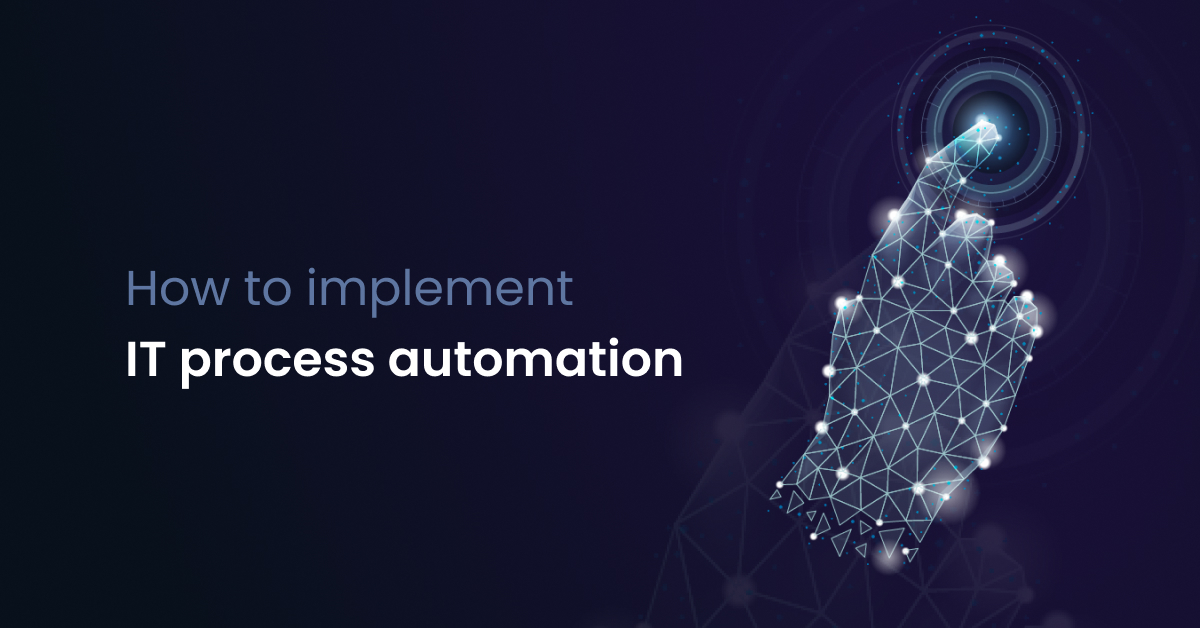In this era of cutting-edge data analytics, the significance of effective customer data management cannot be overstated. Customer data is more than just a list of names and contact information; it represents a dynamic asset encompassing a vast array of details, from contact information and purchase history to demographic insights and real-time social media updates.
Gone are the days of relying on cumbersome spreadsheets to handle this invaluable data. Not only is this approach inefficient, but it also poses significant risks. To harness the full potential of customer data, it’s imperative to establish a robust infrastructure, whether in the form of a database or a customer relationship management (CRM) system. Renowned solutions like Salesforce, HubSpot, or Marketo are integral to this pursuit. The key isn’t just collecting data; it’s about understanding what data to collect and, equally vital, safeguarding it for precise customer tracking, prospect analysis, and measuring the effectiveness of your sales and marketing strategies.
Understanding Customer Data Management

Customer data management is the systematic process of gathering, organizing, cleansing, and analyzing personal customer data within an organization. It’s the linchpin of data-driven decision-making and goes beyond mere customer lists.
When customer data is seamlessly integrated with purchase history, organizations gain the ability to forecast sales trends, assess the success of sales campaigns, evaluate past sales performance, and even predict future behavioral patterns. The potential applications are as diverse as your creativity allows.
Take, for instance, the financial sector, where banks can fuse a customer’s personal information with their financial transactions. By harnessing the power of artificial intelligence, they can expedite decision-making processes for loans and credit cards, all while crafting tailored financial products and real-time banking experiences that cater to individual needs.
Mastering Customer Data Management Best Practices
Mastering customer data management is the key to understanding your customers deeply and delivering what they truly desire. Embracing best practices in customer data management opens doors to personalized experiences, data-driven insights, and the ability to stay one step ahead in a rapidly evolving business landscape.
With the right tools and strategies in place, you can not only collect data but transform it into actionable insights that drive your business forward. Your customers’ data holds the key to unlocking a new level of success in this competitive world. So, let’s explore the world of customer data management best practices and harness its transformative potential for your business.
Why is Customer Data Management Important?
In the fast-paced realm of modern business, customer data management is more than just a best practice; it’s a lifeline for companies. Customer data, often described as the lifeblood of any organization, ranks second only to financial data in importance. The loss of this crucial resource can have catastrophic consequences, sometimes even leading to business closures. Therefore, having a well-thought-out strategy for safeguarding customer data is imperative.
Now let us delve into the reasons why effective customer data management is indispensable, exploring how it can not only protect your company but also unlock hidden potential through valuable insights.
Safeguarding Information – Best Practices in Customer Data Management
Customer data management is a comprehensive approach that encompasses the collection, storage, and utilization of customer information. It’s not merely about preserving data; it’s about preserving trust. When your customers have confidence that their data is secure, they are more likely to engage with your brand. On the flip side, security breaches can have dire consequences, eroding trust and damaging your company’s reputation in the long term.
The best practices in customer data management ensure the security and integrity of customer information, and by adhering to these practices, you establish a strong foundation of trust with your clientele.
Leveraging Insights – The Power of Customer Data Management
Beyond safeguarding information, customer data management unlocks a treasure trove of insights. By analyzing customer data, you gain an in-depth understanding of your customer base. This knowledge empowers you to customize your products and services to align with their needs, leading to increased customer satisfaction and loyalty. Without a proper customer data management strategy, these invaluable insights may remain dormant, missing out on opportunities for growth and improvement.
Regulatory Compliance – A Business Imperative
In the contemporary business landscape, regulations surrounding customer data are more stringent than ever. Neglecting compliance can result in hefty fines and legal troubles. Effective customer data management ensures that your company adheres to these regulations, providing peace of mind and keeping your business out of harm’s way. Compliance is not an option; it’s a necessity, and it’s essential to demonstrate your commitment to ethical and responsible data handling.
Backup Plan – A Safety Net for Your Data
As previously emphasized, having a backup plan is crucial. A well-devised plan can mitigate the impact of data loss or breaches, ensuring minimal disruption to your operations. Customer data management plays a pivotal role in this context, as it dictates how quickly and efficiently you can recover your essential customer information in case of unforeseen events.
Customer data management is not a choice; it’s a necessity for businesses in today’s data-driven world. By implementing best practices in the field, you can safeguard your customer data, unlock valuable insights, maintain regulatory compliance, and establish a robust disaster recovery plan. In doing so, you protect your company’s most precious asset and secure its future in an increasingly data-driven world.
Remember, customer data management isn’t just about data; it’s about the future and sustainability of your business.
Customer Data Management Best Practices

In the world of business, data reigns supreme. But collecting every piece of information isn’t the key; it’s about smart, effective customer data management. To help you navigate the data maze, ensuring you collect the right data, keep it accurate, and secure it, we present the five best practices in this guide.
1. Careful Consideration of Critical Information
Customer data management begins with smart choices about the data you collect. In the digital age, less can often be more. Before you request any data, ask yourself why you need it. For example, do you really need fax numbers in the era of high-speed broadband and digital communication? Probably not. If your business doesn’t ship physical products, is it essential to collect mailing addresses? Likely not.
What truly matters is having an email address and a phone number to stay in touch with your customers. Moreover, it’s crucial to track how your customers discover your business and which messages resonate with them. This empowers you to tailor your marketing strategies effectively, focusing your resources where they yield the best results.
2. Collect Customer Data Wisely
Customer data collection should be a gradual process that respects your customers’ boundaries. While incentives like eBooks, newsletters, or special reports can be used to collect customer information, it’s essential not to overwhelm your audience with data requests.
Consider a step-by-step approach, starting with the basics like name and email address. As your relationship with the customer deepens and you provide more value, you can ask for additional information. This approach respects your customers’ time and keeps them engaged, gradually guiding them through your sales funnel.
3. Data Cleansing: The Key to Accurate and Reliable Analytics
Inaccurate and outdated data can be a costly burden. Regular data cleaning is essential to prevent mishaps. Data cleaning involves updating out-of-date information, merging and eliminating duplicate records, and removing entries for individuals who have long lost contact with your company.
For example, some email newsletter platforms can identify subscribers who haven’t opened an email in months. You can send them one last message to verify their interest. If they don’t respond or opt out, it’s time to remove them from your list. Cleaning your data not only improves your email deliverability but also saves you time and resources.
4. Ensure Data Accuracy
Data accuracy is the cornerstone of effective customer data management. To ensure accuracy, consider using verification techniques such as asking customers to confirm their email address by entering it twice or sending a double opt-in confirmation email. Off-the-shelf data verification tools can seamlessly integrate with your CRM platform to validate email addresses, phone numbers, and mailing addresses.
Remember, data accuracy is critical; incorrect data can result in unsent emails, missed marketing opportunities, and ultimately, lower sales.
5. Secure Customer Data
In the digital age, data security is paramount. Safeguarding sensitive information is not just a best practice; it’s a legal and ethical obligation. A data breach can be disastrous, not only for your customers but also for your business.
To keep your customer data secure, maintain multiple backups, encrypt your data, and limit access. Consider establishing a tiered access system, with only a select few individuals having admin access to your data. This reduces the risk of accidental data corruption and ensures data quality. Additionally, invest in cybersecurity measures and ensure your business insurance covers potential cyber and data breaches.
Conclusion
In the fast-paced, data-driven landscape of today’s business world, your ability to effectively manage customer data can be the game-changer you’ve long sought. It’s no longer just about collecting data; it’s about harnessing its potential through understanding and strategic utilization.
Why Customer Data Management Matters
By incorporating best practices in customer data management, you lay the foundation for enhanced marketing campaigns, increased sales, and more precise analytics. Your data isn’t just information; it’s an asset that can empower your decision-making processes. This, in turn, allows you to tailor your products and services more effectively to meet your customers’ ever-evolving needs.
In a world where data reigns supreme, treating your customer data with the utmost care is the master key to unlocking your company’s full potential. Prioritize it, invest in the right tools, and seek expertise in the field. You’ll soon witness how your business reaps the undeniable benefits of such investments.
A Necessity, Not an Option
Treat your data with the respect it deserves, and it will serve as the guiding compass for your business’s journey to success. However, neglect it, and you’ll find yourself adrift in a sea of missed opportunities and avoidable pitfalls.
Remember that your approach to data management can either make or break your business. The choice is clear: embrace best practices in customer data management, and you’ll be steering your company towards a future filled with growth and prosperity.
FutureX – Customer Data Management Best Practices, Assured!
FutureX is your trusted partner for the latest solutions in customer data management. Our professional data management services form the bedrock of modern businesses, seamlessly connecting every facet of the data’s life cycle.
With a focus on efficiency and precision, FutureX offers a comprehensive suite of services, ensuring that your data is retrieved, controlled, stored, accessed, and managed with the utmost expertise.
In this era of data-driven decision-making, staying ahead of the curve is essential. FutureX is here to provide you with the latest and most innovative solutions to meet your business’s data management needs.
Don’t miss out on the opportunity to transform your data into a valuable asset. Get in touch with FutureX today for more information and take your data management to the next level.
Your success is our commitment.
























